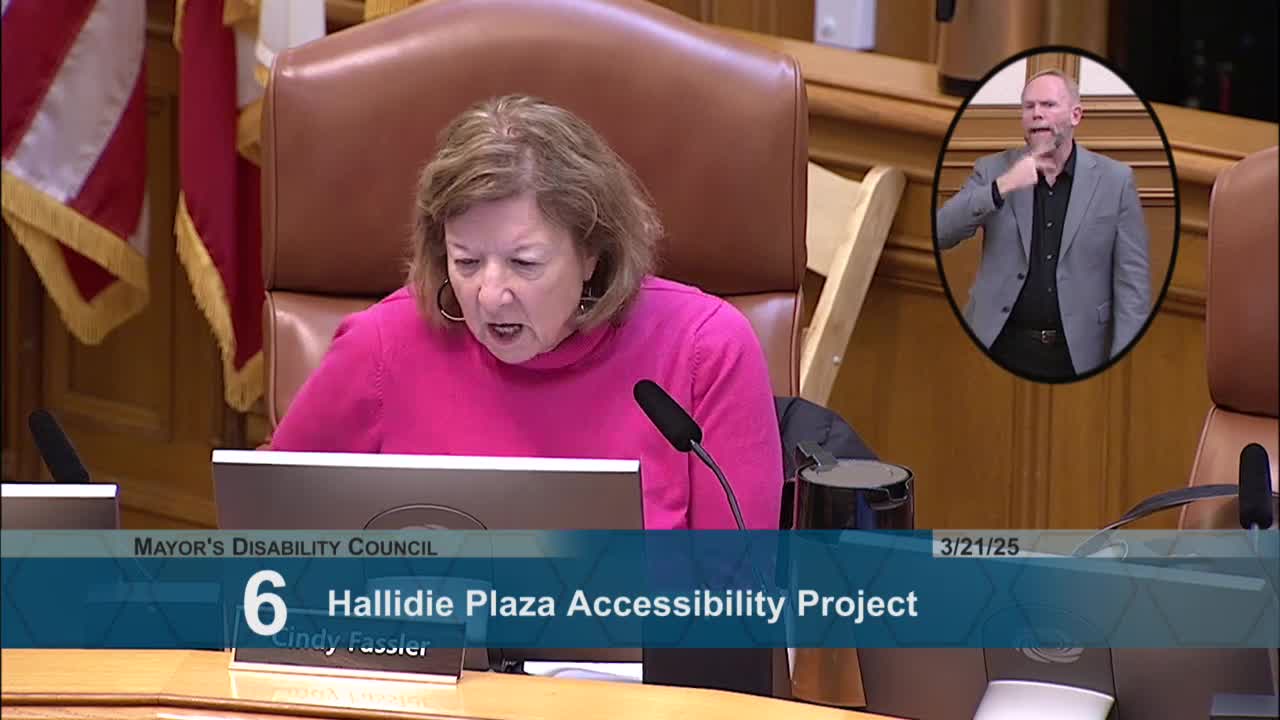Community discusses Optimum RX as temporary pharmacy solution amid Walgreens closures
March 21, 2025 | San Francisco City, San Francisco County, California
This article was created by AI summarizing key points discussed. AI makes mistakes, so for full details and context, please refer to the video of the full meeting. Please report any errors so we can fix them. Report an error »

In the heart of San Francisco's bustling city hall, a poignant discussion unfolded, highlighting the pressing challenges faced by residents in accessing essential healthcare services. As the meeting progressed, one speaker voiced a deep concern over the recent closure of Walgreens stores, which has left many without convenient access to pharmacies. "This is just a band-aid to the travesty of the Walgreens stores being closed," they lamented, emphasizing the impact on caregivers who rely on local pharmacies for prescriptions.
In response to this crisis, the speaker introduced an alternative solution: Optimum RX, an online prescription service that accepts Medicare and various insurance plans. "Until we can get pharmacies back in the neighborhood, this could be a band-aid," they noted, explaining how prescriptions could be sent directly to homes or caregivers, providing a temporary relief for those in need.
The conversation then shifted to accessibility in urban design, as another participant praised a proposed design by Mr. Leddy. They raised an important question about inclusivity, asking if anyone in Leddy's firm had disabilities that could inform better accessibility features. The speaker suggested Chris Downey, a blind architect, as a potential collaborator who could enhance the design's accessibility for all.
As the meeting drew to a close, it became clear that while temporary solutions like Optimum RX offer some relief, the community's need for accessible pharmacies and inclusive design remains urgent. The discussions not only shed light on immediate concerns but also sparked a broader conversation about the importance of accessibility in urban planning, leaving attendees with a sense of hope for future improvements in the city.
In response to this crisis, the speaker introduced an alternative solution: Optimum RX, an online prescription service that accepts Medicare and various insurance plans. "Until we can get pharmacies back in the neighborhood, this could be a band-aid," they noted, explaining how prescriptions could be sent directly to homes or caregivers, providing a temporary relief for those in need.
The conversation then shifted to accessibility in urban design, as another participant praised a proposed design by Mr. Leddy. They raised an important question about inclusivity, asking if anyone in Leddy's firm had disabilities that could inform better accessibility features. The speaker suggested Chris Downey, a blind architect, as a potential collaborator who could enhance the design's accessibility for all.
As the meeting drew to a close, it became clear that while temporary solutions like Optimum RX offer some relief, the community's need for accessible pharmacies and inclusive design remains urgent. The discussions not only shed light on immediate concerns but also sparked a broader conversation about the importance of accessibility in urban planning, leaving attendees with a sense of hope for future improvements in the city.
View full meeting
This article is based on a recent meeting—watch the full video and explore the complete transcript for deeper insights into the discussion.
View full meeting
